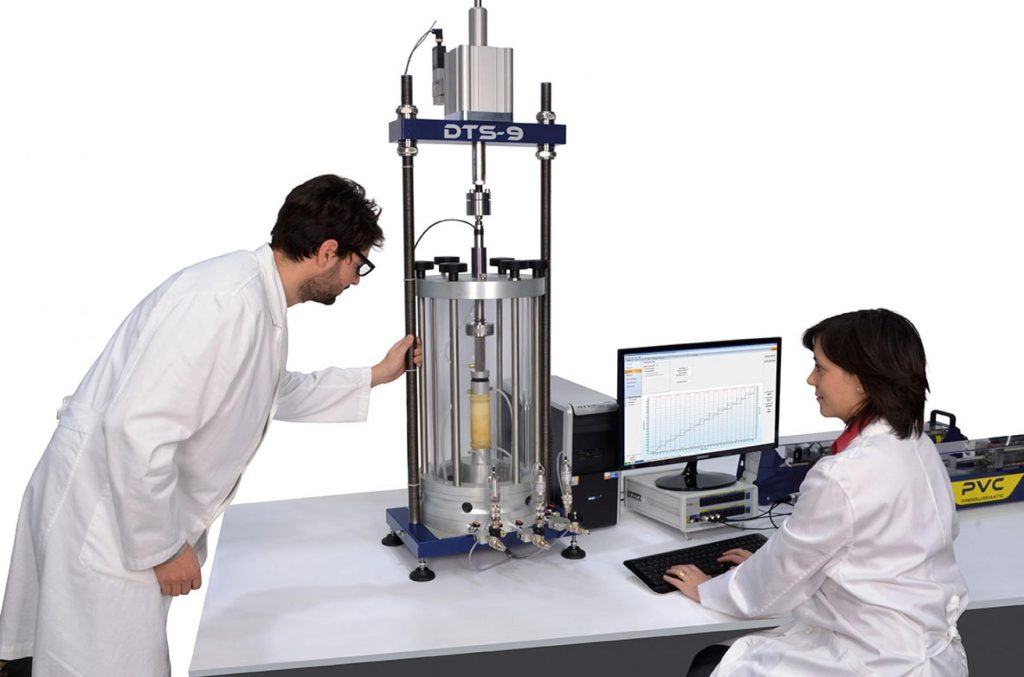Soil testing is an essential process for maintaining healthy soil and thriving plants. By testing your soil, you can determine its pH, nutrient levels, and other important properties. This information can then be used to develop a fertilization plan and make other amendments to improve your soil health.
There are a variety of soil testing machines and equipment available, ranging from simple kits that can be used at home to more sophisticated equipment that is used in professional laboratories. The best type of soil testing equipment for you will depend on your needs and budget.
Soil Testing Machines
Soil testing machines are used to measure various properties of soil, such as pH, nutrient levels, and moisture content. Some of the most common types of soil testing machines include:
- pH meters: pH meters measure the acidity or alkalinity of soil. Soil pH is an important factor in plant growth, as different plants prefer different pH levels.
- Nutrient testers: Nutrient testers measure the levels of specific nutrients in soil, such as nitrogen, phosphorus, and potassium. These nutrients are essential for plant growth, and having the right levels of nutrients in your soil can help your plants thrive.
- Moisture testers: Moisture testers measure the amount of water in soil. Soil moisture is also important for plant growth, and having the right amount of moisture in your soil can help your plants stay healthy and productive.
Soil Sample Tools
Before you can test your soil, you need to collect a sample. There are a variety of soil sample tools available, such as:
- Soil augers: Soil augers are tools used to collect soil samples from different depths.
- Soil probes: Soil probes are narrow tools that are used to collect soil samples from specific areas.
- Soil trowels: Soil trowels are used to collect soil samples from the surface of the ground.
Best Soil Testers
The best soil testers for you will depend on your needs and budget. If you are just starting out, you may want to consider a simple soil test kit that you can use at home. These kits typically measure pH and nutrient levels.
If you need more detailed information about your soil, you may want to consider sending a sample to a professional laboratory for testing. Professional laboratories can test for a wide range of soil properties, including pH, nutrient levels, moisture content, and organic matter content.
Other Soil Testing Equipment
In addition to soil testing machines and soil sample tools, there are a variety of other soil testing equipment available, such as:
- Soil thermometers: Soil thermometers measure the temperature of soil. Soil temperature is an important factor in plant growth, as different plants prefer different temperature ranges.
- Soil salinometers: Soil salinometers measure the salinity of soil. Salinity can be harmful to plants, so it is important to test your soil for salinity if you live in an area with salty soil.
- Soil texture analyzers: Soil texture analyzers measure the percentage of sand, silt, and clay in soil. Soil texture is an important factor in water drainage and nutrient retention.
Benefits of Using Soil Testing Equipment
Using soil testing equipment has a number of benefits, including:
- Improved soil health: Soil testing can help you identify any problems with your soil, such as nutrient deficiencies or pH imbalances. Once you know what problems your soil has, you can take steps to correct them and improve your soil health.
- Increased plant growth and yield: Healthy soil leads to healthy plants. By using soil testing equipment to improve your soil health, you can increase the growth and yield of your plants.
- Reduced fertilizer costs: Soil testing can help you determine the exact amount of fertilizer that your plants need. This can help you avoid over-fertilizing, which can waste money and harm your plants.
- Improved environmental protection: Over-fertilizing can pollute waterways and other environmental resources. By using soil testing equipment to avoid over-fertilizing, you can help to protect the environment.
How to Choose the Right Soil Testing Equipment
When choosing soil testing equipment, there are a few factors to consider, such as:
- Your needs: What do you need to test your soil for? If you are just starting out, you may want to consider a simple soil test kit that measures pH and nutrient levels. If you need more detailed information about your soil, you may want to consider sending a sample to a professional laboratory for testing.
- Your budget: Soil testing equipment can range in price from a few dollars to several thousand dollars. Choose equipment that fits your budget and needs.
- The features you need: Some soil testing equipment
How to Use Soil Testing Equipment
Once you have chosen the right soil testing equipment, you need to know how to use it properly. Here are some general instructions:
- Collect a soil sample. The best way to do this is to collect samples from different areas of your yard or garden. This will give you a more accurate representation of your soil’s overall composition.
- Follow the instructions that come with your soil testing equipment. Each type of equipment will have its own specific instructions.
- Record your results. Once you have finished testing your soil, it is important to record your results. This will help you track your soil health over time and make necessary adjustments.
Conclusion
Soil testing equipment is an essential tool for maintaining healthy soil and thriving plants. By using Certified Material Testing Products, you can identify any problems with your soil and take steps to correct them. This can lead to improved plant growth and yield, reduced fertilizer costs, and improved environmental protection. If you are looking for high-quality soil testing equipment at competitive prices, consider exploring the comprehensive range offered by Certified Material Testing Products to ensure accurate and reliable results for your soil analysis needs.

